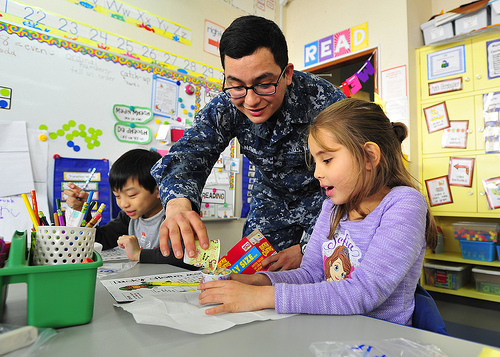Pass or Fail: The Importance of Early Intervention Programs

In this multi-part series, I provide a dissection of the phenomenon of retention and social promotion. Also, I describe the many different methods that would improve student instruction in classrooms and eliminate the need for retention and social promotion if combined effectively.
While reading this series, periodically ask yourself this question: Why are educators, parents and the American public complicit in a practice that does demonstrable harm to children and the competitive future of the country?
If a child is behind developmentally, do you feel our current early intervention programs do enough to get them “up to speed” prior to entering school?
The importance of early intervention cannot be emphasized enough. Young minds are constantly learning new behavioral, emotional, physical and social skills. When the ability to function appropriately in one or more areas is hindered, challenges in other areas often follow. How the child interacts with their environment will have a direct impact on their academic success. Early intervention seeks to address developmental delays and disabilities before a child begins school, as a step toward advanced preparedness.
School Supports
In some cases, delays and disabilities are not identified until a child is of school age. In this case, the primary objectives for intervention in a school-based setting would be twofold. The child would require assistance to address their diagnosed delay. They would also need to maintain an appropriate standard of academic performance and help keeping up with peers. Any knowledge that had been lost in the time between the developmental issue becoming apparent, and the point at which it was actually addressed, should be focused on with appropriate interventions.
Due to the natural logistics of the system, there is often at least a sixty-day window before adequate data can be collected about the needs of a student. Sufficient information is needed for school teams to create Individualized Education Plans. Data collection is the general purpose of the 504 document that serves as a monitor for a child’s academic progress and general developmental growth.
Early Childhood Intervention
Early intervention should be considered together with the system’s objectives. From birth to pre-kindergarten-aged children, those objectives are to develop IFSPs or IEPs that target the development of positive socio-emotional skills, the ability to apply appropriate behaviors to meet needs, and the development of skills related to knowledge and skills acquisition.
For children birth to pre-K, knowledge and skills in the general areas of early language development and communication are emphasized. Language and communication skills serve as a foundation for more advanced developmental learning. Other proficiencies targeted for children in this age range include problem-solving skills, basic number concepts, and basic reasoning skills.
Intervention Goals
In child-centered terms, the goal of early intervention is to ensure that children entering school have the necessary skills to succeed academically: to meet the demands of the classroom learning experience, as well as the specific demands related to knowledge and skills acquisition. Students are often retained because they have failed to master some level of knowledge or certain skills, especially with regard to basic literacy. If early intervention helps to reduce the number of students who are retained, its use is justified. Early intervention is a crucial tool for the development of literacy and communication skills. Intervention also focuses on development of appropriate socio-emotional and behavioral skills, all of which have an important, if indirect, impact upon educational experience.
Indeed, early intervention does what the No Child Left Behind Act cannot do: it does what is necessary so that no child is left behind. Whereas NCLB demands that schools demonstrate that students are learning, early intervention serves to transfer skills to students to ensure that they can learn, identifying those students who have not developed particular skills, or who are likely to need assistance in developing specific skills.
Early intervention also removes ideas of student accountability, at least insofar as it is applied to students before they enter school, when learning is very much a natural process, undertaken in the natural environment, most notably, in the home. From the perspective of early intervention, the fact that certain children do not develop certain skills or acquire certain knowledge is not necessarily the fault of the child or their environment. It may be that fundamental developmental processes and various foundational skills must be developed before a higher level of learning is possible.
Do you feel our current early intervention programs are truly effective at preparing children with developmental delays or disabilities for elementary school life? What changes to intervention programing would you make to illicit more successful outcomes?






